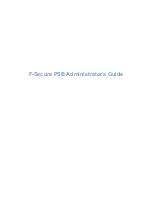
Using cffile
823
Note:
Modern versions of Internet Explorer and Netscape support MIME type associations. Other
browsers and older versions might ignore these associations.
ColdFusion saves any uploaded file if you omit the
accept
attribute or specify "*/*". You can
restrict the file types, as demonstrated in the following examples.
The following
cffile
tag saves an image file only if it is in the GIF format:
<cffile action="Upload"
fileField="Form.FiletoUpload"
destination="c:\uploads\"
nameConflict="Overwrite"
accept="image/gif">
The following
cffile
tag saves an image file only if it is in GIF or JPEG format:
<cffile action="Upload"
fileField="Form.FiletoUpload"
destination="c:\uploads\"
nameConflict="Overwrite"
accept="image/gif, image/jpeg">
Note:
If you receive an error similar to "The MIME type of the uploaded file (image/jpeg) was not
accepted by the server", enter
accept="image/jpeg"
to accept JPEG files.
This
cffile
tag saves any image file, regardless of the format:
<cffile action="Upload"
fileField="Form.FiletoUpload"
destination="c:\uploads\"
nameConflict="Overwrite"
accept="image/*">
Setting file and directory attributes
In Windows, you specify file attributes using the
cffile
attributes
attribute. In UNIX, you
specify file or directory permissions using the
mode
attribute of the
cffile
or
cfdirectory
tag.
Windows
In Windows, you can set the following file attributes:
•
Hidden
•
Normal
•
ReadOnly
To specify several attributes in CFML, use a comma-separated list for the
attributes
attribute;
for example,
attributes="ReadOnly,Hidden"
. If you do not use the
attributes
attribute, the
file’s existing attributes are maintained. If you specify any other attributes in addition to Normal,
the additional attribute overrides the Normal setting.
UNIX
In UNIX, you can individually set permissions on files and directories for each of three types of
users—owner, group, and other. You use a number for each user type. This number is the sum of
the numbers for the individual permissions allowed. Values for the
mode
attribute correspond to
octal values for the UNIX
chmod
command:
•
4 = read
•
2 = write
Summary of Contents for COLDFUSION MX 61-DEVELOPING COLDFUSION MX
Page 1: ...Developing ColdFusion MX Applications...
Page 22: ...22 Contents...
Page 38: ......
Page 52: ...52 Chapter 2 Elements of CFML...
Page 162: ......
Page 218: ...218 Chapter 10 Writing and Calling User Defined Functions...
Page 250: ...250 Chapter 11 Building and Using ColdFusion Components...
Page 264: ...264 Chapter 12 Building Custom CFXAPI Tags...
Page 266: ......
Page 314: ...314 Chapter 14 Handling Errors...
Page 344: ...344 Chapter 15 Using Persistent Data and Locking...
Page 349: ...About user security 349...
Page 357: ...Security scenarios 357...
Page 370: ...370 Chapter 16 Securing Applications...
Page 388: ...388 Chapter 17 Developing Globalized Applications...
Page 408: ...408 Chapter 18 Debugging and Troubleshooting Applications...
Page 410: ......
Page 426: ...426 Chapter 19 Introduction to Databases and SQL...
Page 476: ...476 Chapter 22 Using Query of Queries...
Page 534: ...534 Chapter 24 Building a Search Interface...
Page 556: ...556 Chapter 25 Using Verity Search Expressions...
Page 558: ......
Page 582: ...582 Chapter 26 Retrieving and Formatting Data...
Page 668: ......
Page 734: ...734 Chapter 32 Using Web Services...
Page 760: ...760 Chapter 33 Integrating J2EE and Java Elements in CFML Applications...
Page 786: ...786 Chapter 34 Integrating COM and CORBA Objects in CFML Applications...
Page 788: ......
















































